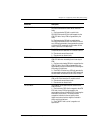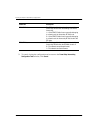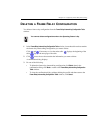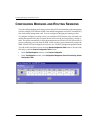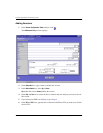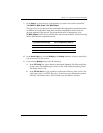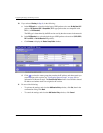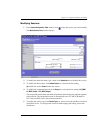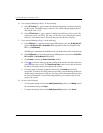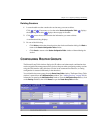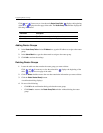
Chapter 24: Configuring Bridging and Routing
Avidia System Configuration and Management User Manual 487
The first row of the Session Configuration Table displays information for a session that connects
the management card to the ATM network. The VPI and VCI for this session are assigned
internally. Click and if necessary to view the entire
Session Configuration Table.
displays the beginning of the table. displays the next page of the table. The
Session
Configuration Table
window displays the following information:
Information Description
Admin Status The configured admin status of the session.
• Up indicates the session is enabled.
• Down indicates the session is disabled.
Oper Status The current operational status of the selected port.
• Up indicates the port is operational and passing data.
• Down indicates the port is not operational.
Slot The slot and port of the line or channel card that is used for the
session.
Card Type The type of line or channel card used for the session.
VPI The line or channel card VPI used for the session.
VCI The line or channel card VCI used for the session.
Service Type The type of service configured for the session, either Bridging,
Routing, Brouting (bridging and routing) or n/a, which indicates that
no service is configured.
Bridge Port The index number assigned to the logical bridging port used for the
session. This number is automatically assigned by the system. If
bridging is not enabled, this value is n/a.
Route IP Address The IP address of the management card logical port or WAN address
used for this session (routing sessions only). If routing is not enabled,
this value is n/a.
Subscriber The subscriber name assigned to identify the session.
Encap The configured encapsulation mode, either LLC_SNAP,
VC_MUX_Bridged or VC_MUX_Routed.





